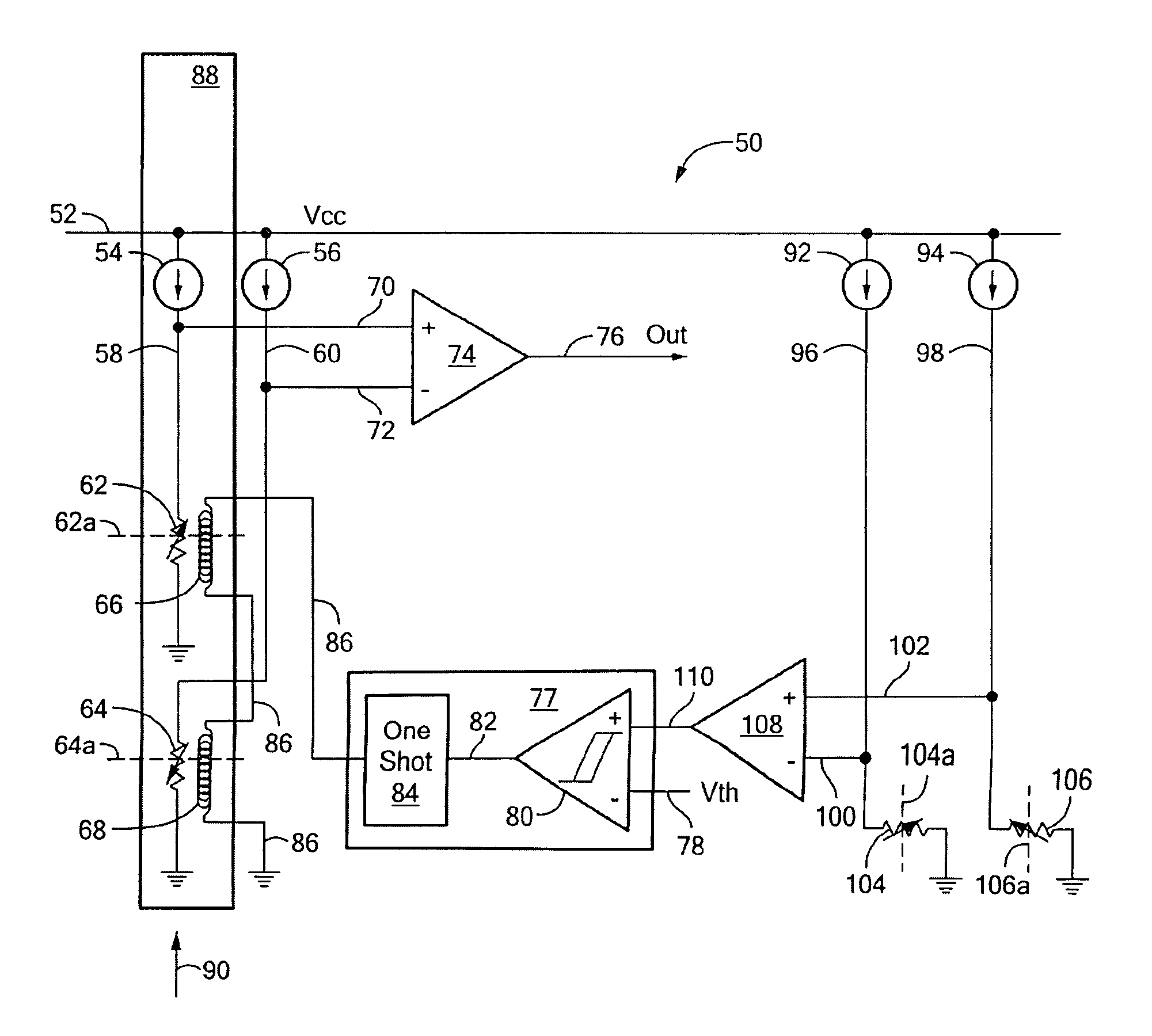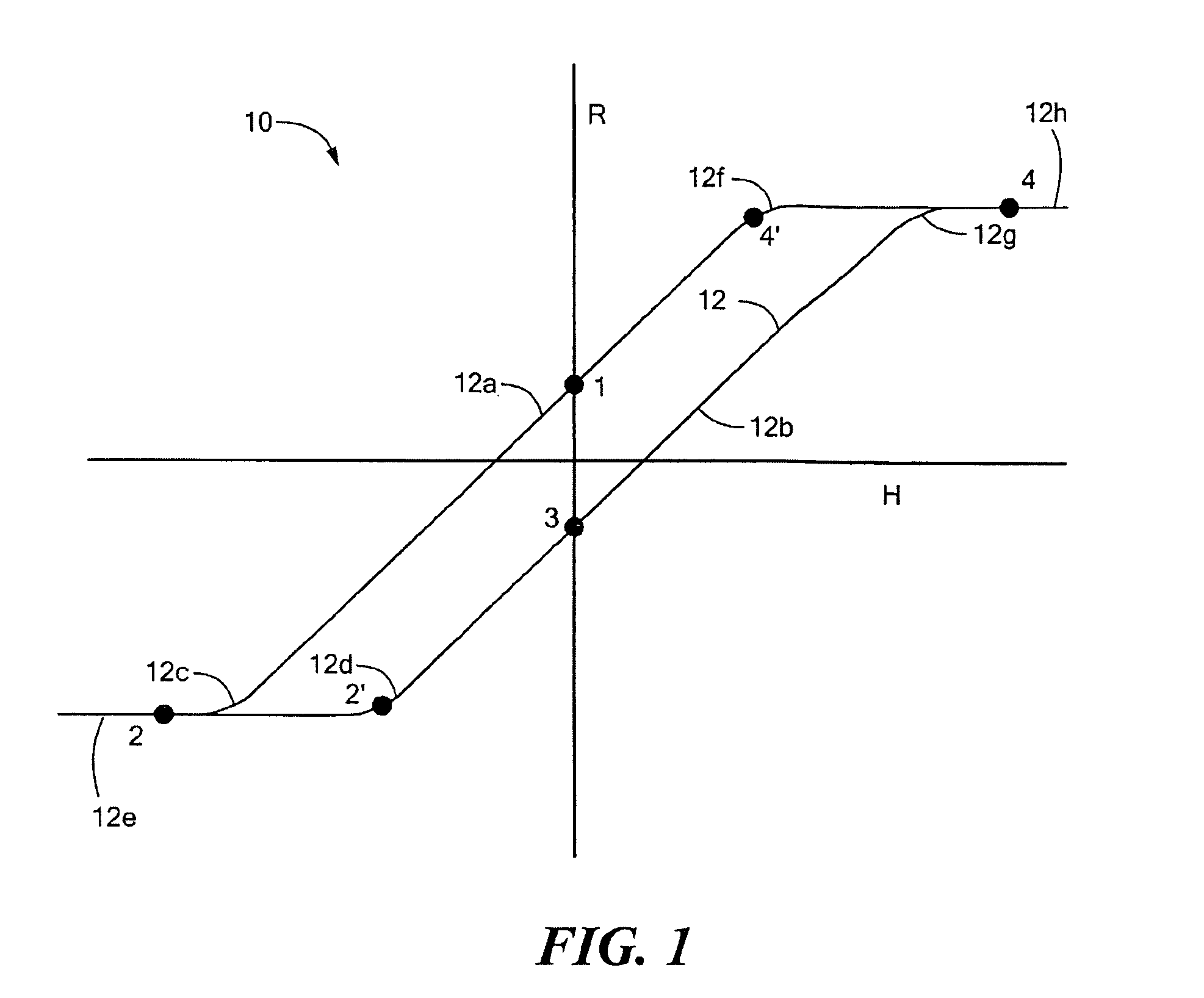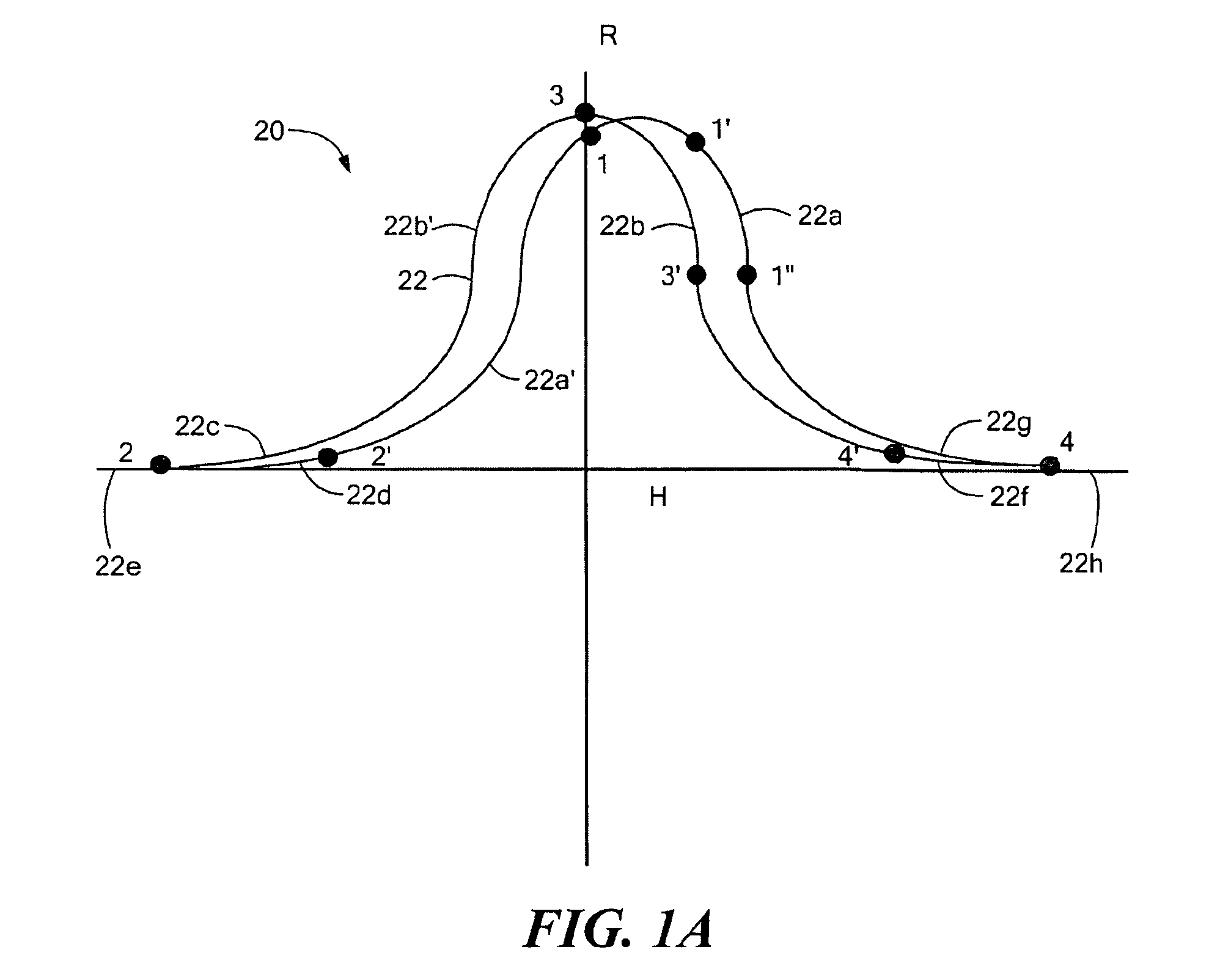Electronic circuit and method for resetting a magnetoresistance element
a technology of magnetoresistance element and electronic circuit, which is applied in the field of circuits, can solve the problems of inability to fully oppose the feedback circuit, and inability to eliminate the effect of hysteresis characteristic, etc., and achieve the effect of reducing the uncertainty of the sensed magnetic field due to hysteresis characteristi
- Summary
- Abstract
- Description
- Claims
- Application Information
AI Technical Summary
Benefits of technology
Problems solved by technology
Method used
Image
Examples
Embodiment Construction
[0026]Before describing the present invention, some introductory concepts and terminology are explained. As used herein, the term “magnetic field sensing element” is used to describe a variety of electronic elements that can sense a magnetic field. While magnetic field sensing elements are shown and described below to be magnetoresistance elements, in other arrangements, the magnetic field sensing elements can be, but are not limited to, Hall effect elements or magnetotransistors. As is known, there are different types of Hall effect elements, for example, a planar Hall element, and a vertical Hall element. As is also known, there are different types of magnetoresistance elements, for example, a giant magnetoresistance (GMR) element, an anisotropic magnetoresistance element (AMR), a tunneling magnetoresistance (TMR) element, and a magnetic tunnel junction (MTJ).
[0027]As used herein, the term “magnetic field sensor ” is used to describe a circuit that includes a magnetic field sensin...
PUM
 Login to View More
Login to View More Abstract
Description
Claims
Application Information
 Login to View More
Login to View More - R&D
- Intellectual Property
- Life Sciences
- Materials
- Tech Scout
- Unparalleled Data Quality
- Higher Quality Content
- 60% Fewer Hallucinations
Browse by: Latest US Patents, China's latest patents, Technical Efficacy Thesaurus, Application Domain, Technology Topic, Popular Technical Reports.
© 2025 PatSnap. All rights reserved.Legal|Privacy policy|Modern Slavery Act Transparency Statement|Sitemap|About US| Contact US: help@patsnap.com



